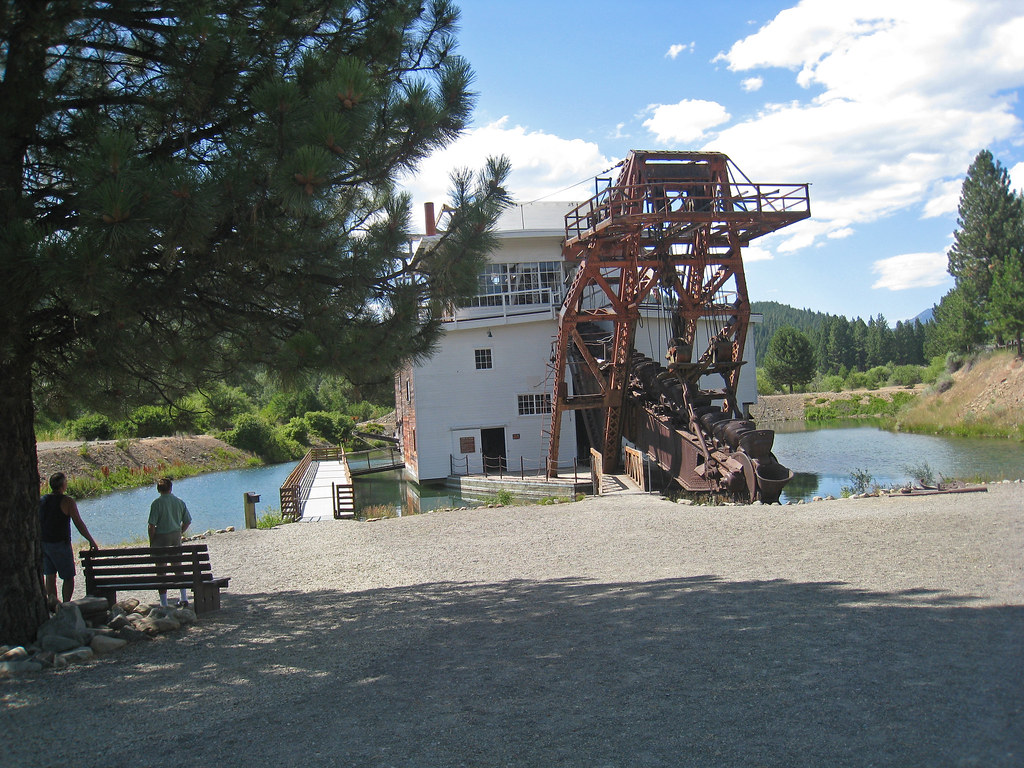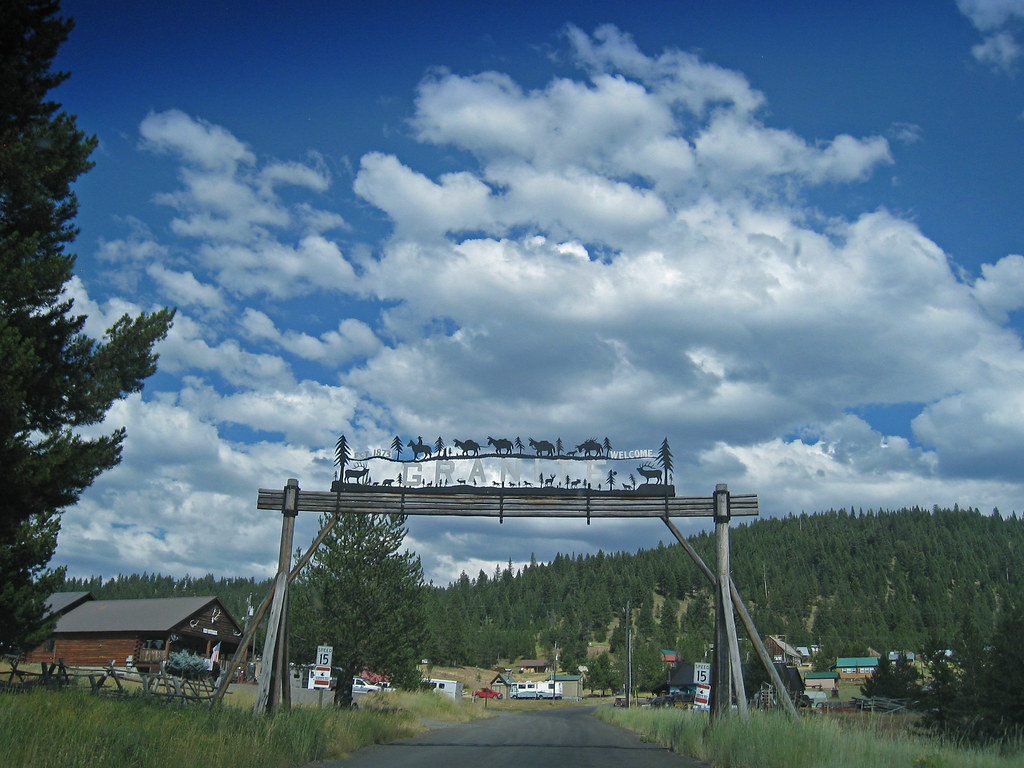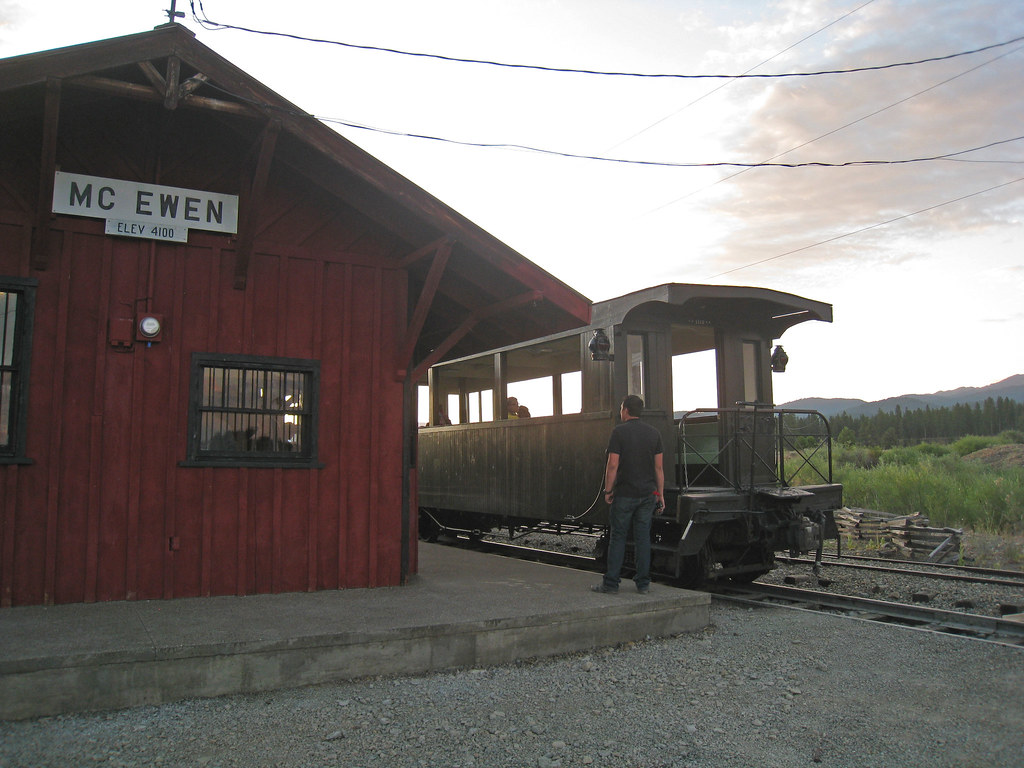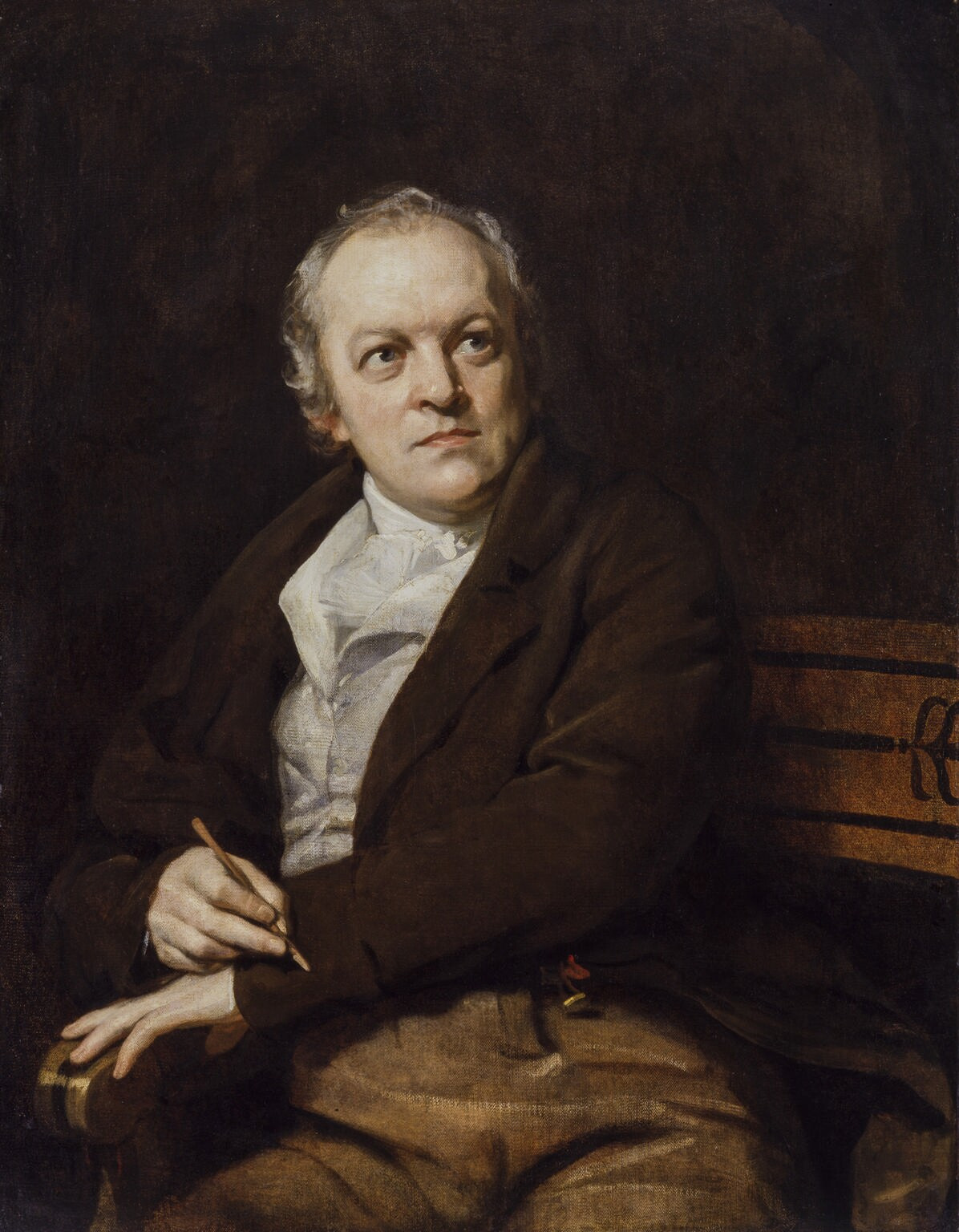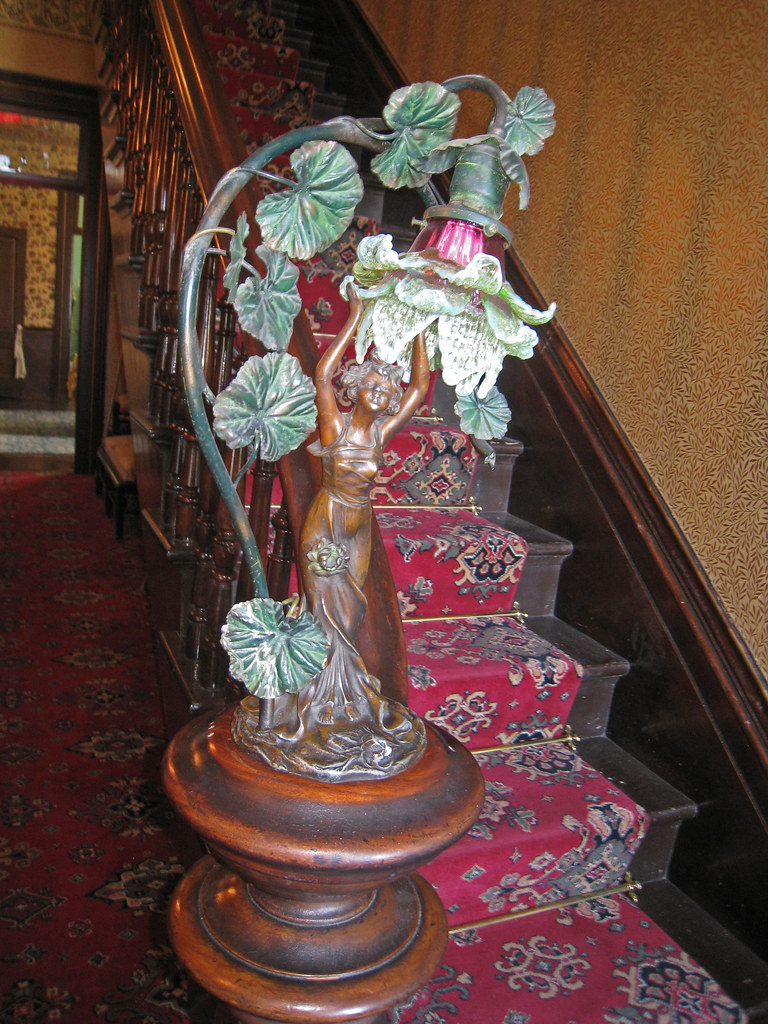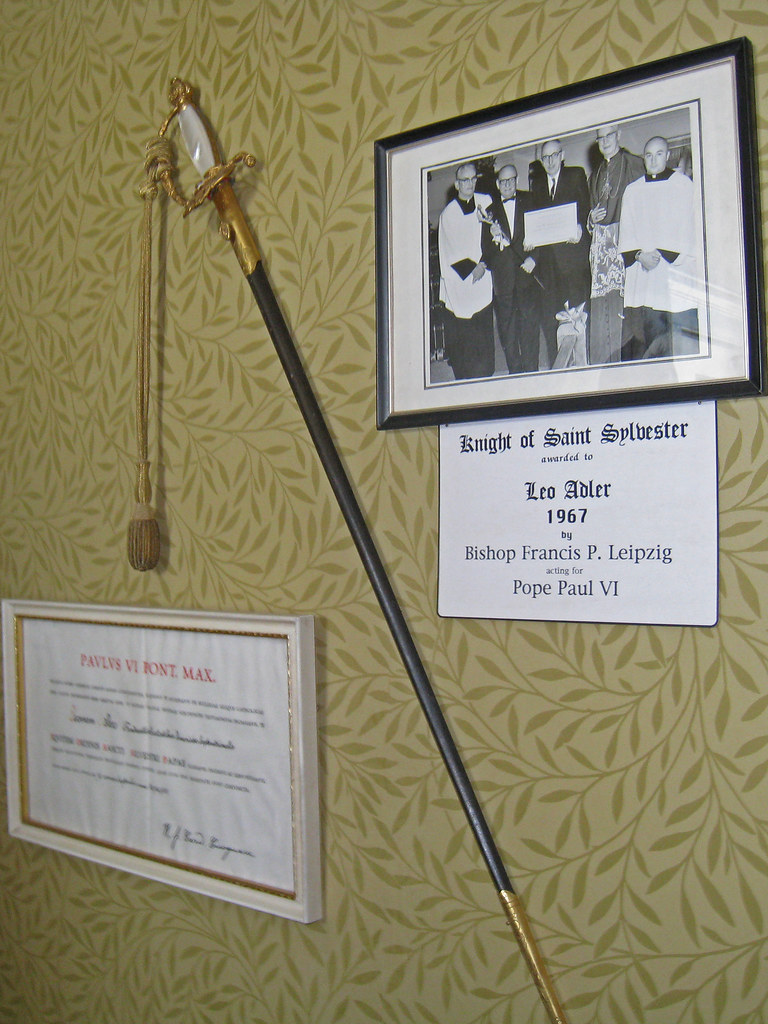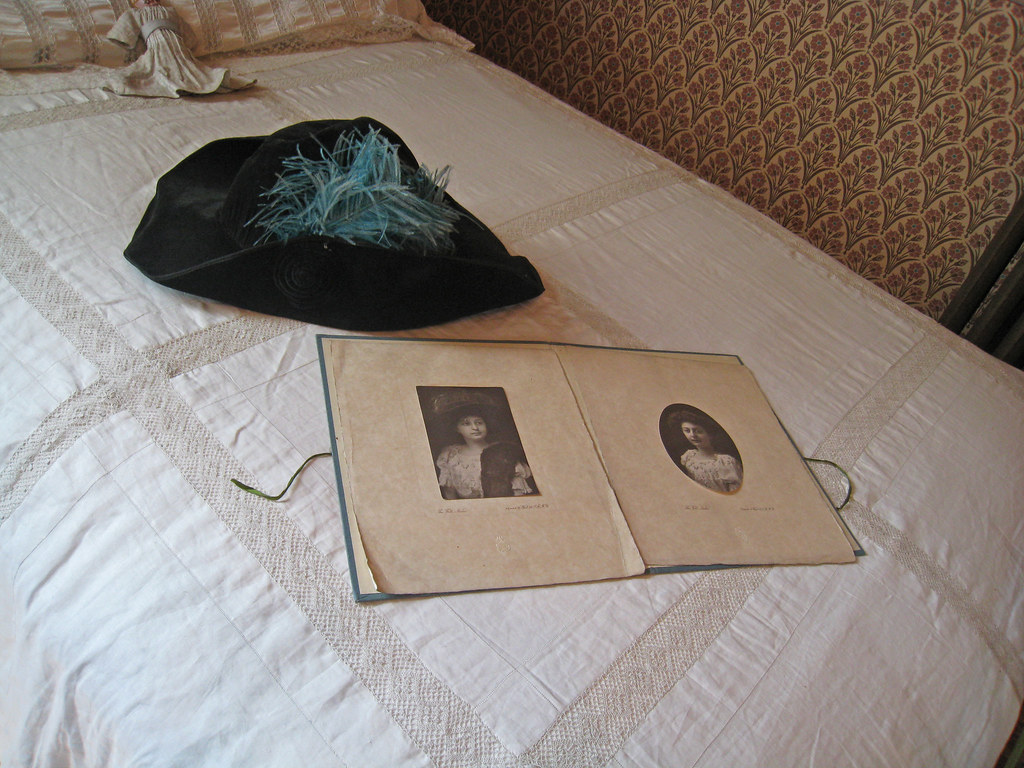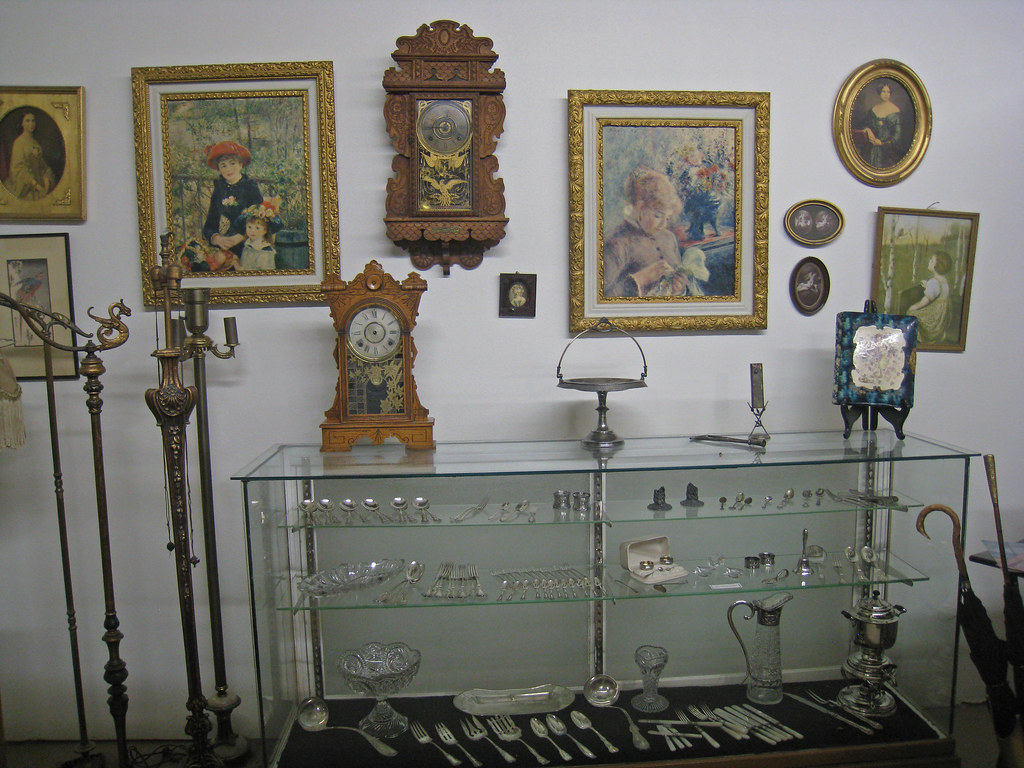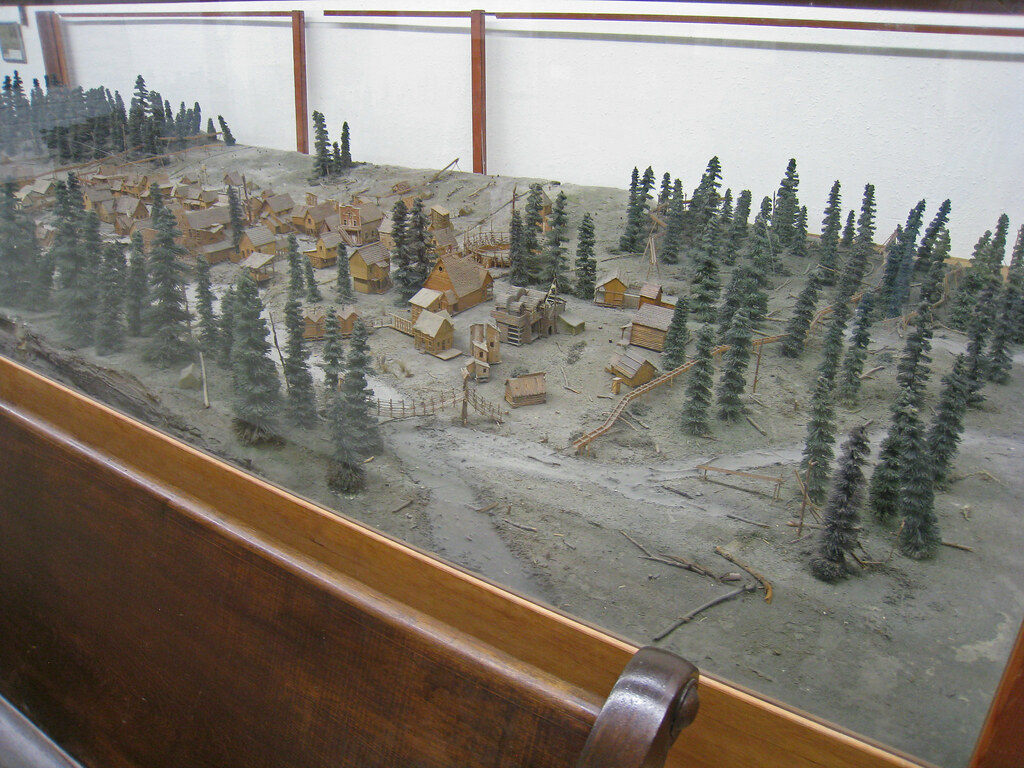Eastern Oregon Trip: Elkhorn Scenic Byway
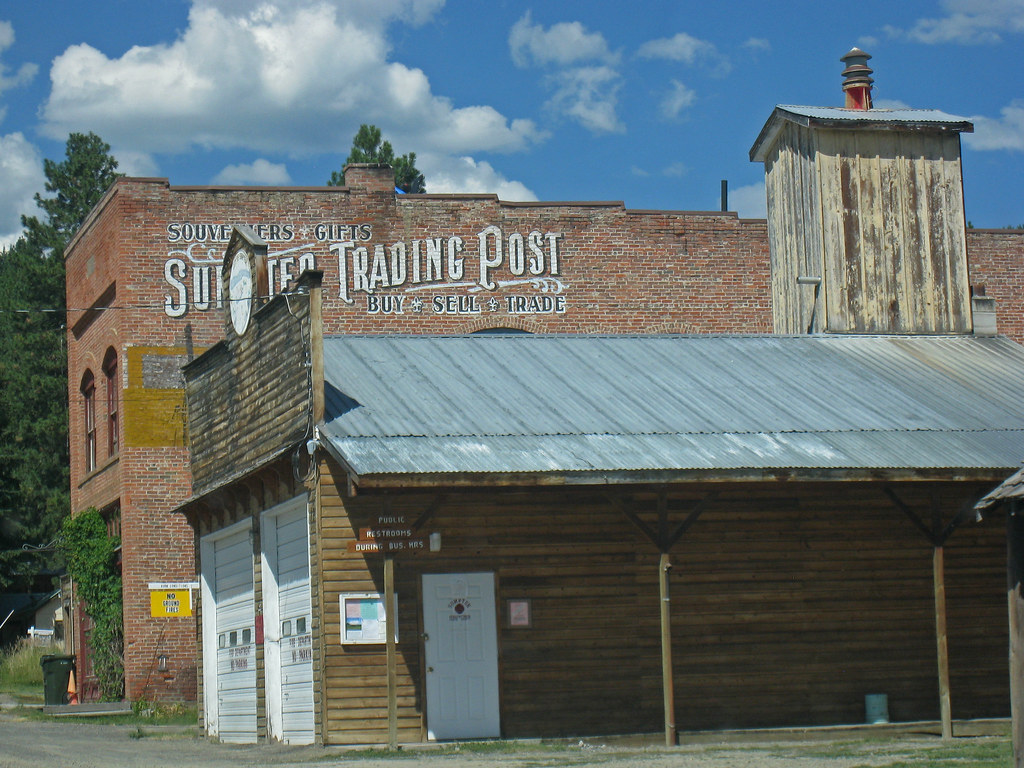 After shuffling through two museums, we were ready to go for a drive. Our first destination outside of Baker City was Sumpter, Oregon, a little over a half-hour drive. Sumpter doesn't qualify as a ghost-town, but it has plenty of those Old West buildings, and it has a ghost-dredge....a retired gold dredge, that is.
After shuffling through two museums, we were ready to go for a drive. Our first destination outside of Baker City was Sumpter, Oregon, a little over a half-hour drive. Sumpter doesn't qualify as a ghost-town, but it has plenty of those Old West buildings, and it has a ghost-dredge....a retired gold dredge, that is.
The gold dredge used water to pull the gold out of the soil. The material sluiced through the moving building, water washing the gold to the bottom of the sluices, along with other heavy materials, and the lighter materials were dumped out the back. The gold bits mixed with black sand were tumbled in a barrel with mercury-coated paddles. The gold bonded with the mercury, while the black sand escaped below. I wonder if the person responsible for this gave the Mad Hatter a run for his money. I also wonder how much mercury escaped into the ponds and piles and the Powder River.
This was the last of three dredges built on the Powder River, built in 1935, retired in 1954.. After viewing the dredge inside and out, it was mid-afternoon, and we had a choice: retrace our drive back to Baker City, or keep going on the scenic byway. If we returned, we'd have enough time to visit the Oregon Trail Interpretive Center, but if we kept going we'd see walls built by the Chinese, ghost towns, and pass over the mountains. We decided to keep going, and there might still be time to make it to the Interpretive Center. First detour off the byway: Granite.
Granite was supposed to be a ghost town, but it looked pretty occupied, and while the old buildings were minimally renovated, you could see the modern energy-efficient doors and windows. The next stop on the byway was to visit the Chinese Walls, but now that I research, I see I was looking at the wrong thing!
"The Ah Hee Diggings, also called the Chinese Walls, are sixty acres of hand-stacked, winding rock walls constructed of placer mine tailings. The walls were built by Chinese miners who worked gold-mining claims for the Ah Hee Placer Mining Company along a five-mile stretch of Granite Creek from 1867 to 1891." source, link aboveAll the signs showed the stop with stone barriers, so I took photos of those, but what this website shows as walls were not cemented rocks, but piled rocks.
Before Granite we went over a pass of 5,864 feet, and after, a pass at over 7,800 feet, and we saw a mountain still a 1,000 feet higher. The temperature up there was 66 degrees, and when we got to the valley, it was 81 degrees.
We made it to the Oregon Trail Interpretive Center just 20 minutes before they closed. They didn't charge us, though my sweetie donated some money anyway, and they informed us that we could look but we had to be out of the parking lot by 6 pm.
After, we would have liked to stop to see wagon trail ruts near the road, but we had little time to catch some dinner, then go back to Sumpter for our moonlight train ride on the Sumpter Valley Railway. (We ordered room service again for a quick but tasty meal.) We'll just have to visit the End of the Oregon Trail nearby in Oregon City sometime soon. More photos of the dredge, the mountain drive, and the Oregon Trail center can be found here, along with further details.
Normally one would ride this train during the day, but because there was a full moon and the Perseid Meteor Showers were expected, this Moonlight Express was scheduled. Just at that point in time when the next moment I couldn't see, the moment just before that, I saw a deer. This was the extent of our wildlife spotting, other than birds and chipmunks. After twilight fell I spent most of my time with my head back looking at the sky above. Of course that bright lamp of the full moon didn't help any for spotting shooting stars, but I did see one, on our trip back to McEwan Station. The 7 mile trip was extended in time thanks to changing of the engine from front to back, so it would be front again after Sumpter Station. Also, we had cake. More photos and details here.
This was a very full day.
